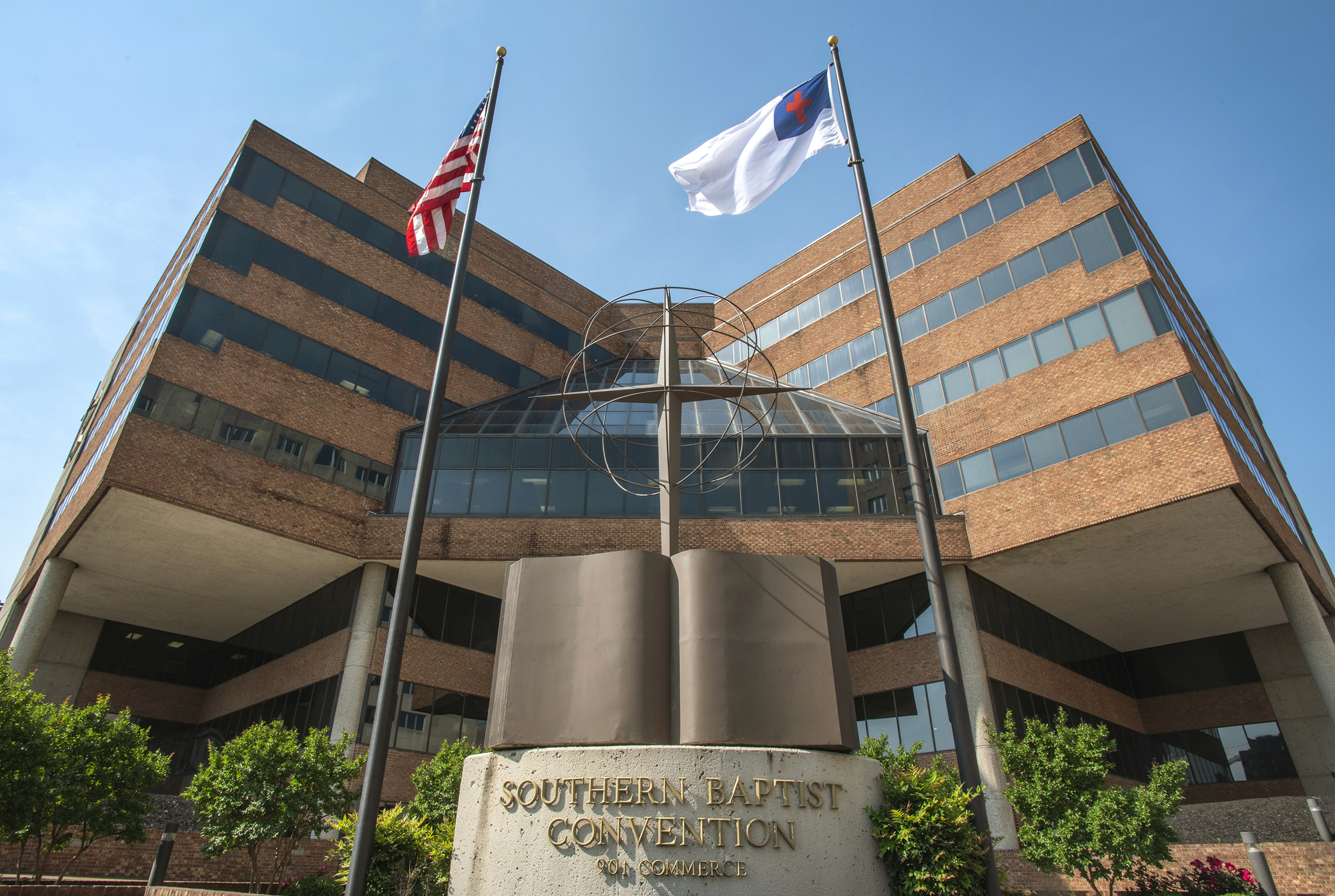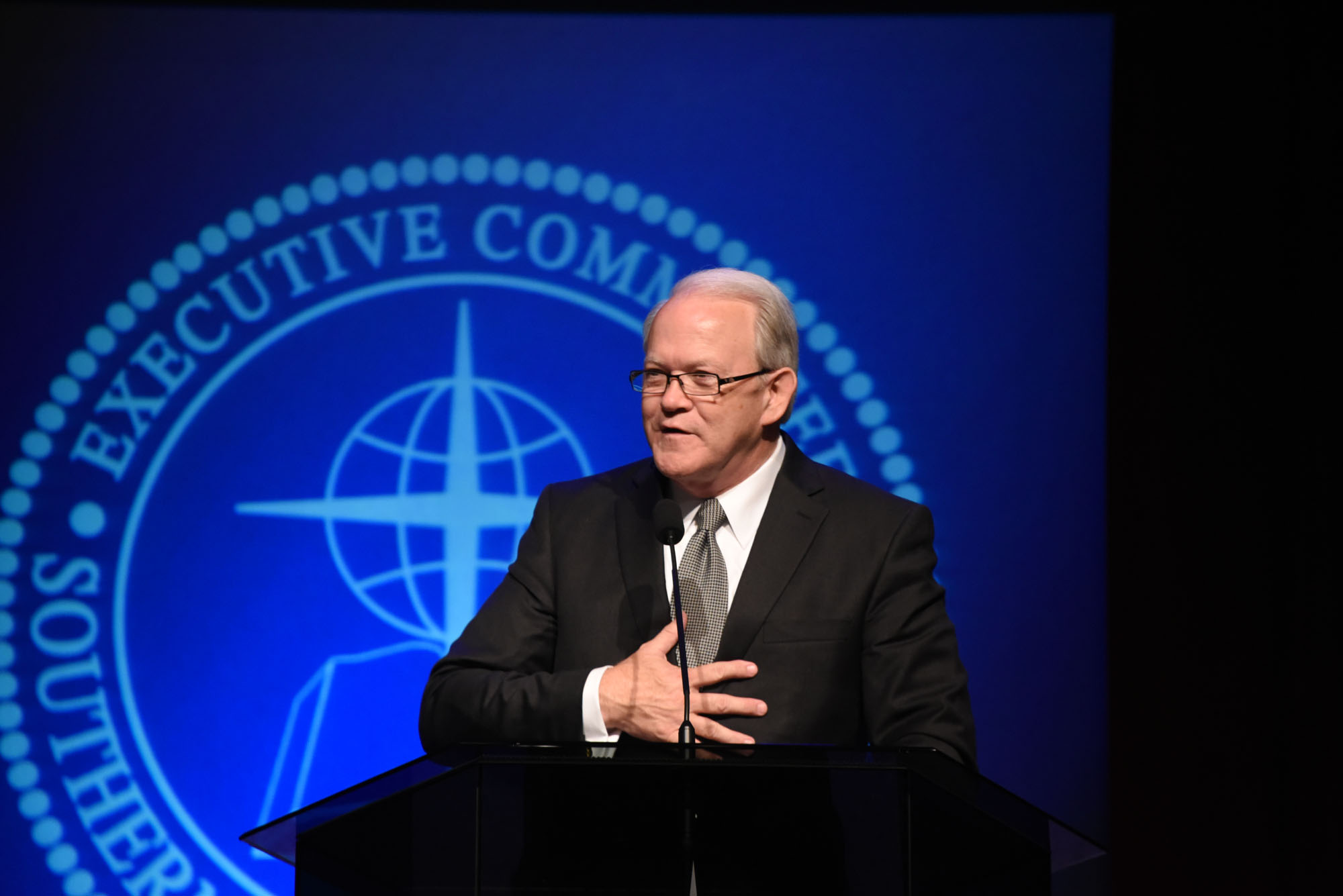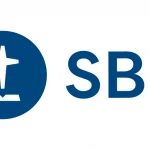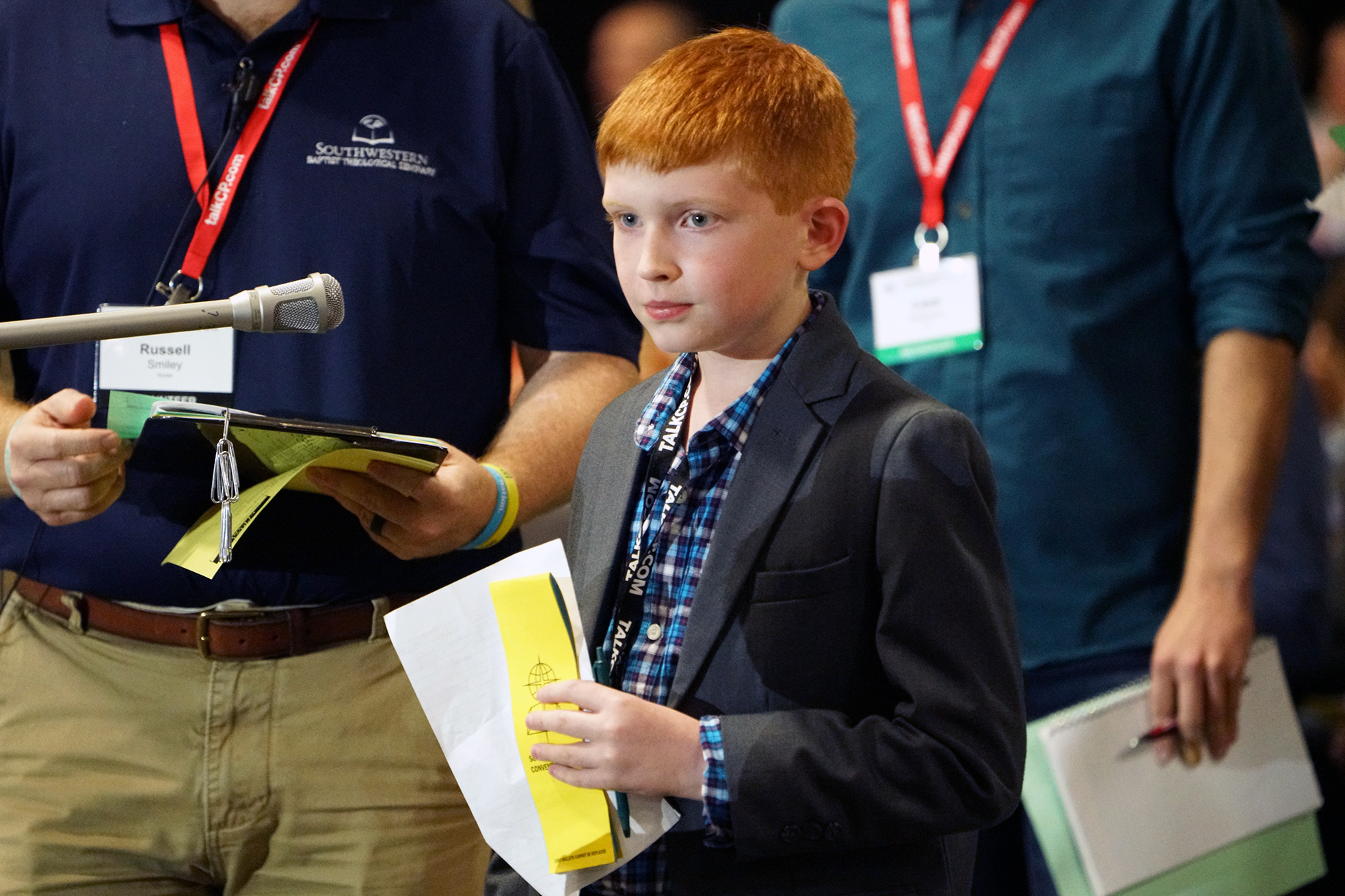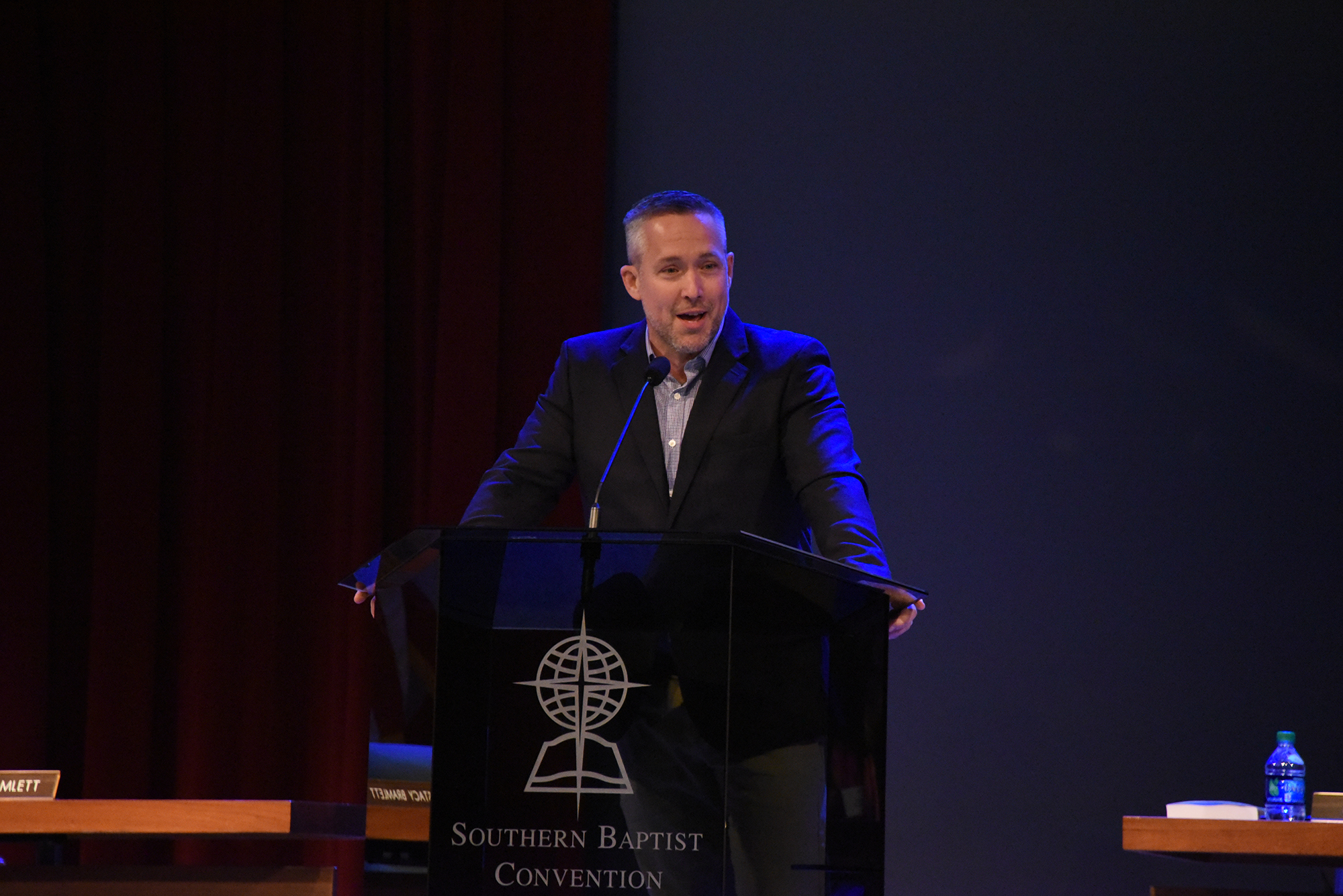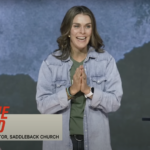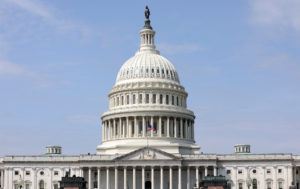
NASHVILLE (BP) — After nearly a year and a half of discussions concerning a Washington church with lesbian co-pastors, the Southern Baptist Convention has notified the District of Columbia Baptist Convention that “the formal relationship between the SBC and the DCBC has come to an end,” according to a statement by interim Executive Committee president D. August Boto.
At its Feb. 19-20 meeting in Nashville, the EC adopted a recommendation granting the DCBC 90 days to “secure” the “removal of any churches from its fellowship that have demonstrated a faith or practice affirming, approving or endorsing homosexual behavior.” If such churches remained in friendly cooperation with the DCBC after May 20, the EC stated, the DCBC would lose its authorization “to receive and disburse Cooperative Program and other SBC contributions.”
At issue was Calvary Baptist Church in Washington, which cooperates with the DCBC and voted in January 2017 to call a legally-married lesbian couple as co-pastors. Calvary voted in 2012 to cease cooperation with the SBC.
Boto told Baptist Press he received a letter May 21 from DCBC executive director Robert Cochran “indicating that the DCBC has not taken action the Executive Committee hoped it would when it issued its Feb. 20 decision. In his letter, Cochran divulged that he anticipated an end to our relationship.”
Boto added, “I issued a letter [May 21], to the DCBC on behalf of the EC, and copying it to all EC members. I will soon send another letter to each of eight churches we know of in DC that are supporting SBC work through financial gifts directed through the DCBC. The letters will inform each group that the formal relationship between the SBC and the DCBC has come to an end and that, beginning [May 21], the SBC no longer recognizes the District of Columbia Baptist Convention as a Baptist body authorized to receive and disburse Cooperative Program and other SBC contributions.”
Cochran contacted Boto in early April inviting EC representatives to meet with him and another DCBC representative May 7 for what Cochran termed “negotiations” about the EC’s February decision, Boto said. Despite the EC’s offer to send representatives to Washington for such a meeting, the gathering did not materialize and Cochran offered to meet via conference call instead.
“In my reply,” Boto said, “I indicated that the long window (almost one and one-half years) during which the DCBC had failed to address our concerns … gave me little hope that a conference call at this late date would be helpful if it did not include those with authority to exclude the errant church from the DCBC’s fellowship by May 20.
“I encouraged him rather to work with his leaders to show [the DCBC’s] doctrinal kinship with the SBC by calling the church to repent or face removal from the DCBC fellowship, something we would find as an affirmation of the convention’s commitment to biblical truth.”
At its February meeting, the EC “expressed deep regret over the need to take this action, but felt compelled to affirm biblical truth over organizational relationships,” Boto said. The EC also indicated its “willingness to consider resuming its relationship with the DCBC in the future” if Calvary repents of its actions or the DCBC removes the church from its fellowship.
